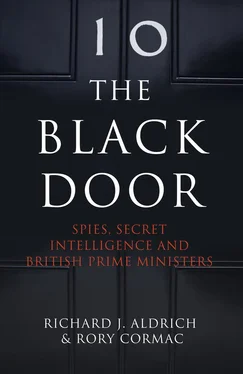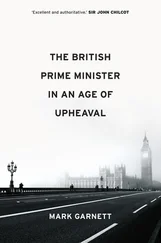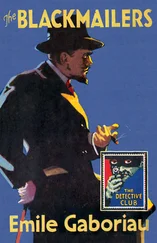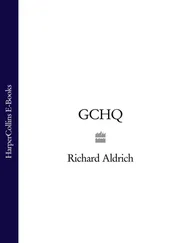The Zimmermann telegram is a rare example of a single piece of intelligence changing the course of history. The way in which the British exposed it was elegant, but had nothing to do with Downing Street. Instead, it was a cooperative venture between Room 40 and the Foreign Office – and perhaps for that reason it was not bungled. Lloyd George, doubtless kept abreast given his strong interest in American orientations, was a mere observer. President Woodrow Wilson had won his recent election campaign on the slogan ‘He kept us out of war’. But, provoked by the Zimmermann telegram, alongside Berlin’s aggressive submarine policy, he declared war on Germany in April 1917.67 In his memoirs, Lloyd George records his gratitude to the codebreakers of Room 40 and their ‘uncanny efficiency in the unearthing of German secrets’.68
By the end of the war everyone seemed to be aware of the British secret service. The famous German philosopher Hannah Arendt, for example, was fascinated by the rise of Britain’s professional spies. She wrote that after the First World War, British secret services ‘began to attract England’s best sons, who preferred serving mysterious forces all over the world to serving the common good of their country’, adding that as a result ‘the stage seemed to be set for all possible horrors’. However, she noted that with the British, unlike the Russians and Germans, ‘a minimum of human rights was always safeguarded’.69 Bertolt Brecht wrote that Britain controlled detective fiction and also controlled the world, clearly feeling that these two things were connected in some subterranean way.70
Room 40 was created as a wartime emergency. Nevertheless, its product proved too valuable for it to disband once the guns fell silent, and in peacetime Britain continued to read the secret communications of many countries. As the armistice talks opened in France, President Wilson sent his trusted confidant Colonel Edward House to join the negotiations. Lloyd George was able to read everything sent between House and Wilson. Yet strangely he had not been bitten by the intelligence bug, and useful as he found it, was not an enthusiast. Intelligence spending dwindled dramatically after the war, and the prime minister was happy to leave the reorganisation of peacetime intelligence matters to his cabinet colleagues. Accordingly, although Lloyd George established a governmental committee to review secret service in 1919, he did not join it. Instead, Churchill, an avid intelligence enthusiast, was the leading light in this important reordering.71 Its most important decision would be to maintain the wartime codebreaking effort and focus all resources in one unit: the Government Code and Cypher School, or GC&CS.72
Nonetheless, in February 1920, Lloyd George was required to revisit intelligence matters. He sought to end the festering conflict with the Bolsheviks, viewing Britain’s support for the White Russians as an unhappy extension of the First World War, and therefore a chapter that should now be closed. Although reluctant to offer recognition to the revolutionaries, the prime minister offered Moscow trade agreements as a path to restoring relations. His cabinet colleagues Churchill and Curzon were horrified, not least because of mounting evidence of Bolshevik subversion against the British Empire. Indeed, although there was clear evidence of Soviet funds going directly to the increasingly communist-dominated Labour Research Department during the early 1920s, it was Moscow’s interference in areas such as India that really got the British cabinet excited.73 MI6 had been active in this clandestine conflict too, and many military intelligence officers who had been heavily involved in the Russian Civil War were also dismayed.74
Once more, Lloyd George had access to his opponents’ decrypts. Not for the last time, a British leader was able to read the derogatory terms in which his opposite numbers discussed him. Lenin denounced the prime minister as a deceiving ‘swine’ and a man without scruples, and urged the Soviet trade delegation in London to repay him with even greater levels of deception. This, of course, was difficult, given that every line of Lenin’s instructions was being decoded by the British. Lloyd George declared himself ‘unruffled by Bolshevik intrigues’, which he considered amateurish and unimportant. He was also prepared to turn a blind eye to the war between Russia and Poland that developed in late 1919. But Moscow was a highly political and divisive issue, and by early 1920, some senior military chiefs had begun to question Lloyd George’s motives. On 15 January General Henry Wilson, the Chief of the Imperial General Staff, wrote in his diary: ‘I keep wondering if L.G. is a traitor & a Bolshevist, & I will watch him very carefully.’ Wilson was especially paranoid about Bolshevik plots, and made several similar entries to the same effect over the next few months.75
The activities of Soviet negotiators in Britain were inflammatory. In August 1920 Leonid Krasin, a Soviet trade representative, had arrived for talks accompanied by Lev Kamenev, head of the Moscow Communist Party. Decrypts clearly showed that Kamenev was establishing secret contact with the embryonic British Communist Party, and subsidising the far-left newspaper the Daily Herald , using smuggled diamonds. Every move was visible to the codebreakers, and General Wilson was incredulous that Lloyd George had not immediately ejected the trade mission. On 18 August, Wilson confided his worries to Winston Churchill and the director of military intelligence, General Sir William Thwaites. Over the next few days he did the rounds of the security chiefs, including Lord Trenchard, who commanded the RAF, Sir Basil Thompson from the Home Office, and Rear Admiral Hugh ‘Quex’ Sinclair, director of naval intelligence, and received a sympathetic hearing.76 On 24 August he noted in his diary: ‘Trenchard with whom I discussed the matter later and to whom I showed … the intercepts thinks like Basil Thompson, that Lloyd George is a traitor.’77
On 2 September, with Lloyd George away in Lucerne, his coalition partner Bonar Law summoned a meeting at Downing Street that included Balfour, Churchill and Basil Thompson. Thompson circulated the latest material from the codebreakers. Thomas Jones, the deputy cabinet secretary, recalled that ‘Everyone felt that the last intercept from Lenin where he lays down propaganda as the business of the Russian Delegation put the lid on and that there was nothing for it but to clear them out as quickly as possible.’78
Hankey, who had accompanied Lloyd George to Lucerne, argued exactly the opposite. He insisted that Wilson was absurdly alarmist, and that the activities of the Soviets in London were silly and easy to counter. His main worry was that if they ejected the Soviets they would have to publish the decrypts to justify their actions, placing the prime minister in a very difficult position. Britain would then lose its ‘most valuable and trustworthy source of secret information’, as no matter what they did to try to disguise the fact, Moscow would probably realise its communications were being read. He continued: ‘This particular cypher is a very ingenious one which was discovered by great cleverness and hard work. The key of the cypher is changed daily and sometimes as often as three times in one message. Hence if it becomes known that we decoded the messages all the governments of the world will probably discover that no messages are safe.’79
Back in London, Lloyd George forced a showdown with his critics. He freely admitted that the Soviets were engaged in ‘perfidy’ and ‘trickery’, but argued that good intelligence could be obtained by keeping the trade mission in place. Although he thought their activities ineffective, he could see that political opinion in cabinet was turning against him, and probably regretted not having taken a closer interest in secret service matters, since the intelligence chiefs had been part of this pressure to act. An opportunity to do so arose in early September, when Kamenev decided to return to Moscow and came to Downing Street to pay his respects. He walked into a diplomatic ambush. Lloyd George met him accompanied by Hankey, Jones and Bonar Law. The prime minister opened with a tirade about ‘gross bad faith’ and interference in British internal affairs, including Soviet attempts to recruit labour leaders and secretly subsidise the Daily Herald . He also accused Kamenev of attempting to turn Poland into a client Soviet state – but did not mention the decrypts. There was obviously a double game going on here, with the prime minister trying to clear himself of suspicions of being overly sympathetic to Bolshevism.80 Perhaps for audience effect, he warned Kamenev that if he did not leave Britain he would be deported.81
Читать дальше












